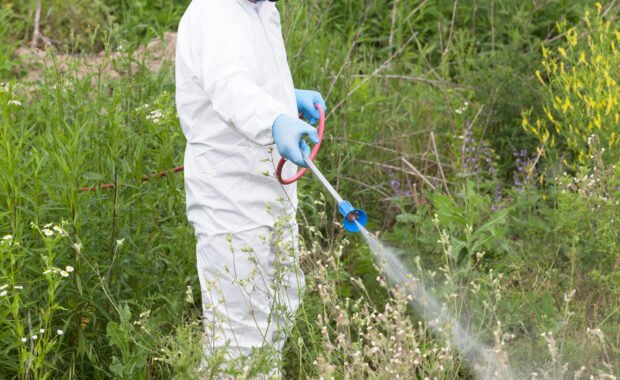As more and more people become aware of the dangers of traditional pest control methods, the demand for organic pest management is growing. Chemical pesticides and insecticides have been used for decades to control pests and protect crops, but they have many negative side effects. Here are the best organic pest management over traditional methods is essential.
The Dangers Of Chemical Pesticides And Insecticides
Chemical pesticides and insecticides are toxic substances that are designed to kill pests. Unfortunately, they can also harm other living organisms, including humans, pets, and wildlife. Exposure to these chemicals has been linked to various health problems, including cancer, birth defects, and neurological disorders. In addition, chemical pesticides can contaminate water sources and harm beneficial insects, such as pollinators and natural predators of pests.
The Environmental Impact Of Traditional Pest Management
Traditional pest management methods can have a significant impact on the environment. Chemical pesticides can harm the soil, water, and air quality and disrupt ecosystems by killing off beneficial insects and disrupting food chains. In addition, using these chemicals can lead to the development of pesticide-resistant pests, making future pest control more difficult and expensive.
The Risks To Human Health Associated With Chemical Pest Control
Exposure to chemical pesticides and insecticides can harm human health, particularly for those who are exposed regularly, such as farmers and agricultural workers. The risks include skin and eye irritation, respiratory problems, and neurological damage. Children are especially vulnerable to the negative effects of these chemicals, as their developing bodies are more sensitive to environmental toxins.
The Benefits Of Organic Pest Management For Pets And Wildlife
Organic pest management methods are designed to be safe for pets and wildlife. By using natural methods to control pests, such as companion planting and crop rotation, organic farmers can protect beneficial insects and wildlife while controlling pest populations. This is especially important for endangered species, such as bees and other pollinators, which are critical for food production and ecosystem health.
How Organic Pest Management Supports Sustainable Agriculture
Organic pest management is an important component of sustainable agriculture. Farmers can reduce their dependence on chemical pesticides and insecticides by using natural methods to control pests, which can be expensive and harmful to the environment. In addition, organic farming practices can improve soil health, reduce water usage, and support biodiversity.
The Long-Term Costs Of Traditional Pest Control Methods
While chemical pesticides and insecticides may provide short-term solutions for controlling pests, the long-term costs can be significant. Pesticide-resistant pests can develop over time, making future pest control more difficult and expensive. In addition, the negative impact on soil health, water quality, and wildlife can lead to long-term environmental damage that is difficult and costly to repair.
Why Organic Pest Management Is Safer For Children And Families
Children are more susceptible to the negative effects of chemical pesticides and insecticides than adults. Their developing bodies are more sensitive to environmental toxins, and exposure to these chemicals can have long-term health consequences. By choosing organic pest management methods, families can reduce their exposure to these harmful chemicals and protect their children’s health.
The Importance Of Reducing Chemical Exposure In The Home And Garden
Chemical pesticides and insecticides are not only used in agriculture but also in homes and gardens. Many people use these chemicals to control pests in their homes and yards, not realizing the potential risks to their health and the environment. By choosing organic pest management methods, homeowners can reduce their exposure to harmful chemicals and create a safer environment for their families.
Promoting Healthy Crops
Another benefit of organic pest management is that it promotes healthy crops. Synthetic pesticides and herbicides can damage the natural balance of soil and plants, leading to nutrient deficiencies and reduced yields. Using natural pest management methods can help promote healthy soil and plants, leading to better crop yields and quality. Organic pest management methods can also reduce the risk of diseases and pests developing resistance to synthetic pesticides, leading to more effective pest control over the long term.
Reducing The Risk Of Harm To Humans And Animals
Synthetic pesticides and herbicides can harm humans and animals, causing a range of health problems, from skin irritation to cancer. By using natural pest management methods, you can reduce the risk of harm to yourself, your family, and your pets. Natural pest management methods are also safer for beneficial insects such as bees and ladybugs, which are essential for pollination and pest control.
Practical Tips For Implementing Organic Pest Management
Implementing organic pest management can seem daunting at first, but you can use many practical tips and strategies to get started. Here are some tips to help you implement organic pest management in your garden or farm:
Use Beneficial Insects – Many insects are natural predators of common garden pests, such as aphids and caterpillars. By introducing these beneficial insects to your garden, you can reduce the need for synthetic pesticides. Ladybugs, lacewings, and parasitic wasps are just a few examples of beneficial insects that can be used for pest control.
Crop Rotation – Crop rotation is a simple but effective method of reducing pest populations. By rotating crops, you can break the pest cycle and reduce the risk of pests becoming established in your garden. This method is especially effective for controlling soil-borne pests such as nematodes.
Intercropping – Intercropping involves planting different crops together in the same area. This method can help reduce the risk of pest infestations by creating a diverse habitat for beneficial insects and disrupting the feeding patterns of pests.
Natural Repellents – There are many natural repellents that can be used to deter pests. Garlic, neem oil, and hot pepper spray are just a few examples. These repellents work by either repelling pests or interfering with their feeding or reproduction.
Handpicking is a simple but effective method of removing pests from plants. This method is beneficial for small gardens or for controlling pests that are difficult to treat with other methods.
Conclusion
Organic pest management is an important aspect of sustainable agriculture and gardening. By using natural pest management methods, we can protect the environment, promote healthy crops, and reduce the risk of harm to humans and animals. Some many natural organic pesticides tips and strategies can be used to implement organic pest management in your Another natural way to control pests is through the use of repellents. Repellents are substances that deter pests from coming near or feeding on plants. Unlike pesticides, repellents do not kill pests. Instead, they create a hostile environment for pests that make them less likely to infest crops or gardens.



